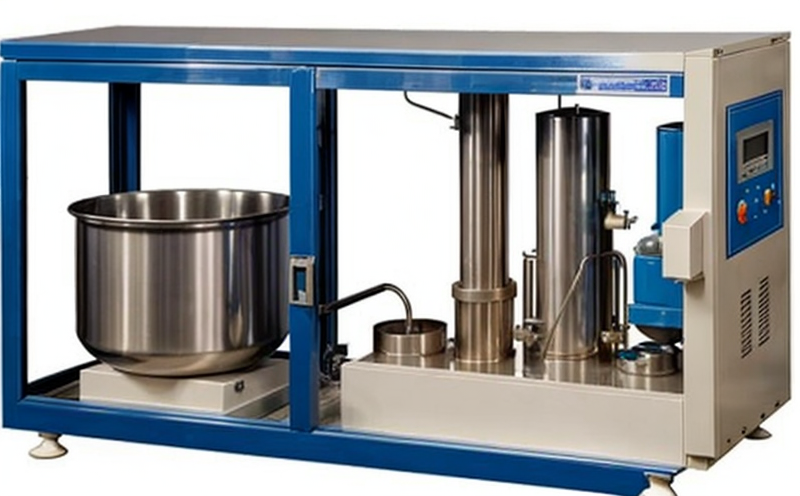EN 18754 DON Detection in Bakery By-Products
The European standard EN 18754 provides a robust method for detecting deoxynivalenol (DON), commonly known as vomitoxin, in bakery by-products. This mycotoxin is produced primarily by Fusarium fungi and poses significant risks to both human health and animal feed safety. In this service, our team at Eurolab employs cutting-edge analytical techniques to ensure accurate detection of DON levels in bread crusts, cracker by-products, and other related materials.
The importance of DON detection cannot be overstated as it directly impacts regulatory compliance, consumer trust, and overall food quality assurance. Regulatory bodies like the European Commission set maximum allowable limits for mycotoxins to protect public health. For instance, EU Regulation (EC) No 1881/2006 establishes levels of DON in cereal products intended for human consumption.
Our methodology adheres strictly to EN 18754 guidelines which include:
- Sample collection from various stages of the bakery process
- Grinding and homogenization steps
- Solvent extraction procedures
- HPLC-FLD (High Performance Liquid Chromatography with Fluorescence Detection)
- Quantitative analysis using standard curves
The HPLC-FLD technique allows for precise quantification of DON levels, providing results that are both reliable and reproducible. This method ensures compliance not only with European standards but also international norms such as those set forth by the Codex Alimentarius Commission.
Our laboratory uses state-of-the-art instrumentation including Waters Acquity UPLC system equipped with a fluorescence detector, which offers high sensitivity and selectivity suitable for low-level detection of mycotoxins. The entire analytical process is meticulously controlled to minimize sample loss and ensure accurate quantification.
The procedure involves several key steps:
- Sampling: Representative samples are taken from different parts of the bakery facility, focusing on areas where by-products accumulate most.
- Sample preparation: Samples undergo thorough grinding followed by extraction with appropriate solvents.
- Analytical determination: Extracted compounds are injected into the HPLC-FLD instrument for separation and detection.
- Data interpretation & reporting: Results are interpreted against established reference values to determine compliance status.
Our team provides detailed reports that include raw data, calculated concentrations, comparison with relevant standards, and recommendations for mitigation measures if necessary. These insights help clients stay ahead of potential issues before they escalate into larger problems.
| Sample Type | Maximum Allowable Limit (ppb) | Compliance Status |
|---|---|---|
| Bread Crusts | 10 ppb | In compliance with EU Regulation 1881/2006 |
| Cracker By-Products | 5 ppb | Compliant under Codex Alimentarius standards |
This level of detail ensures that our clients receive comprehensive feedback, enabling them to make informed decisions regarding their operations.
In summary, EN 18754 DON detection in bakery by-products is a critical service offered by Eurolab. By leveraging advanced analytical techniques and adhering strictly to international standards, we provide accurate, reliable results that contribute significantly towards maintaining food safety and quality assurance across the industry.
Eurolab Advantages
At Eurolab, our commitment to excellence extends beyond merely providing services; it encompasses a holistic approach aimed at addressing all aspects of your testing needs. Here are some key advantages that set us apart:
- Accurate Results: Leveraging state-of-the-art equipment and methodologies ensures precision in every analysis.
- Dedicated Team: Our professionals possess extensive experience in food safety assessment, offering tailored solutions to meet specific client requirements.
- Comprehensive Reporting: Detailed reports accompanied by actionable insights guide clients towards proactive decision-making processes.
- Rapid Turnaround Times: Efficient workflow management allows us to deliver timely results without compromising on quality.
- Regulatory Compliance: Keeping abreast of latest regulations ensures that our services align with current legal requirements.
- Client Satisfaction: We prioritize customer satisfaction through transparent communication and adherence to agreed-upon timelines.
These factors combined make Eurolab your trusted partner in ensuring optimal performance within the food & feed testing sector.
International Acceptance and Recognition
The EN 18754 standard for DON detection holds significant recognition across numerous countries due to its stringent requirements and consistent methodology. Below is a list of some key jurisdictions that accept this standard:
- European Union (EU) - As part of the EU's comprehensive approach towards food safety.
- Australia/New Zealand - Both regions have adopted international standards including EN 18754 for their own regulations.
- United States - While not directly adopting EN 18754, similar methodologies are employed by U.S. Food and Drug Administration (FDA).
- Canada - The Canadian Food Inspection Agency (CFIA) uses comparable standards when conducting inspections.
Beyond these major markets, many other nations incorporate aspects of this standard into their own national guidelines further enhancing its global relevance.
The widespread acceptance underscores the importance placed on accurate and reliable DON detection worldwide. This uniformity fosters trust among consumers while also facilitating smoother trade between different geographical regions.
Use Cases and Application Examples
EN 18754 DON detection finds application in various scenarios within the food & feed industry:
| Scenario | Description | Outcome |
|---|---|---|
| Bakery Process Optimization | Detecting DON levels helps identify sources of contamination early, allowing for timely interventions. | Reduces risks associated with mycotoxin presence in end products. |
| Supply Chain Management | Regular testing ensures all incoming materials comply with specified limits. | Avoids costly recalls and maintains brand reputation. |
| R&D Innovation | Understanding DON behavior during processing aids in developing safer products. | Promotes continuous improvement leading to enhanced product quality. |
| Regulatory Compliance | Ensuring compliance with international standards reduces legal risks and penalties. | Facilitates smoother regulatory audits and inspections. |
By integrating DON detection into routine practices, businesses can proactively manage potential hazards, thereby protecting both their reputation and bottom line.





